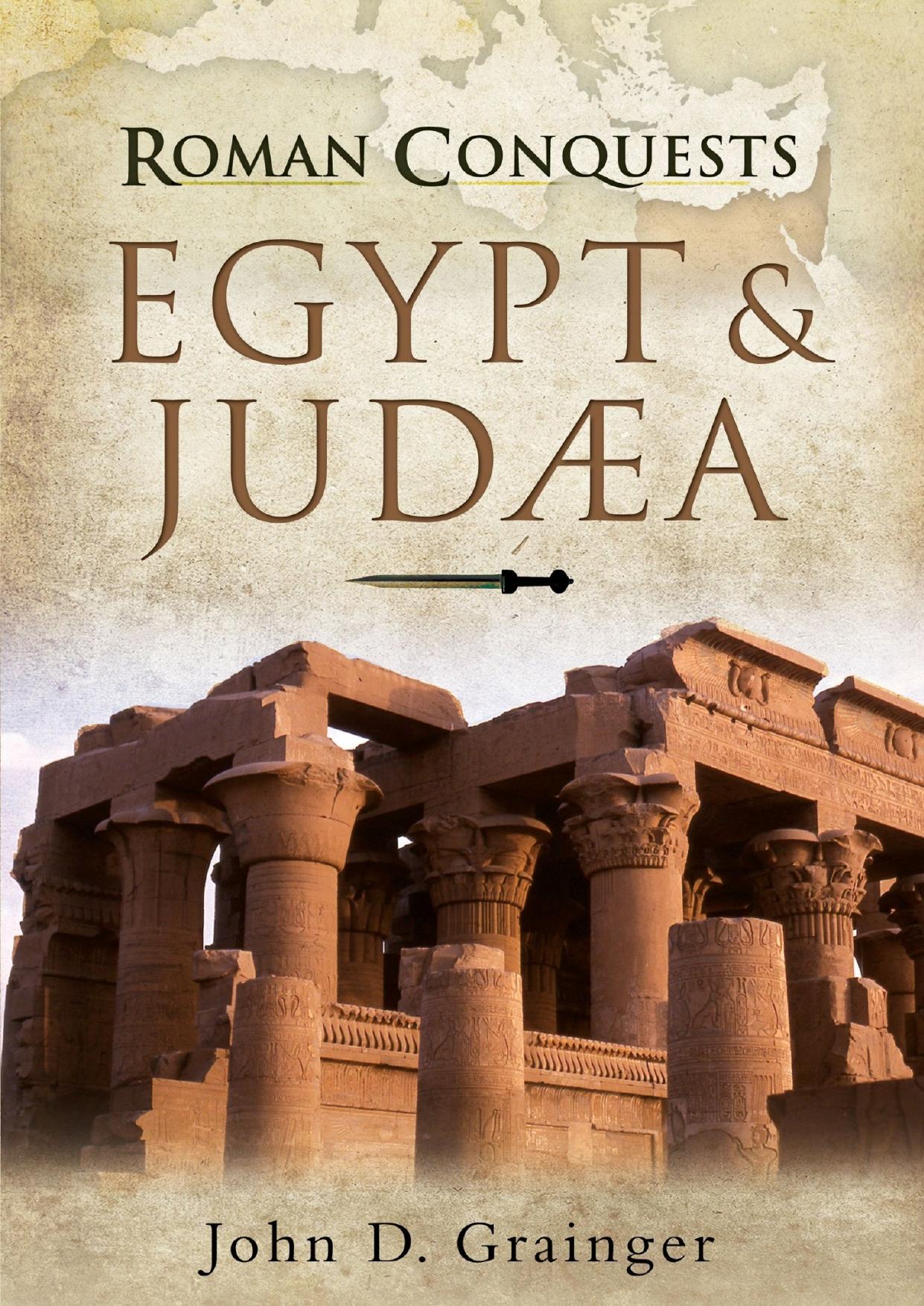Egypt and Judaea by Grainger John D

Author:Grainger, John D.
Language: eng
Format: epub, pdf
Tags: HISTORY / Ancient / General
ISBN: 9781473826632
Publisher: Pen & Sword
Published: 2013-07-16T04:00:00+00:00
Chapter 9
The Arabian Expedition
Aelius Gallus was appointed prefect of Egypt in the wake of the recall of C. Cornelius Gallus, and arrived in his province in 27. Cornelius’ subsequent trial and condemnation by the Senate, and his abandonment by Augustus, were clear indications that the governors of the emperor’s provinces would need to do as they were told, no more and no less. Cornelius had behaved in the way a successful Roman general had always behaved under the Republic, boasting and proud and claiming credit for conquests, but now a governor or a general commanded in the emperor’s name and did the emperor’s bidding – and gave the credit to the emperor.
Aelius Gallus spent a year as prefect in Egypt administering his province. In his first year he sailed up the Nile as far as Thebes. Strabo the geographer accompanied him as did ‘his crowd of associates’ who at one point got up early to hear the groan which was emitted from the statue of Memnon.1 The main reason for the voyage was presumably administrative and to sort out any issues left over from Cornelius’ time. Therefore for perhaps a year Aelius administered his province as governors were intended to.
Then an order came from Augustus to investigate Arabia. Strabo, who gives an account to the expedition, is rather confused as to its purpose. He says Augustus sent Aelius ‘to explore the tribes and places, not only in Arabia, but also in Aithiopia (that is, the Sudan)’. But he then says that it was the Trogodytes who were to be investigated. These lived in Egypt in the land between the Nile and the Red Sea; he comments that the object was to ‘win over’ the ‘Arabians’ or subjugate them. It looks very much as though imperial headquarters did not know very much about any of this, and that Aelius Gallus had to persuade them to be more specific. In the end the objective was Arabia, and he ignored both Aithiopia and the Trogodytes.2
This episode bristles with problems, beginning, as the last paragraph suggests, with the original purpose of the expedition and going through to its result. There are two accounts of importance, by Strabo and by Pliny – the latter fairly brief – and a mention by Dio Cassius.3 These have occasioned a range of modern discussions, usually focussed on one aspect only, to the exclusion of other matters. In addition there is the Periplus Maris Erythraei (the periplus – description and guide – of the Red Sea), written probably a century or so after the expedition (and so after Strabo, before Dio Cassius, and about the same time as Pliny), which gives valuable information about South Arabia which is absent from the other accounts. Only Strabo gives a straightforward account of events, but he was influenced by Augustan propaganda and by his friendship with Aelius Gallus, and this has led to some distortion.
As prefect of Egypt, Aelius had an army of three legions and a dozen auxiliary units at his command.
Download
This site does not store any files on its server. We only index and link to content provided by other sites. Please contact the content providers to delete copyright contents if any and email us, we'll remove relevant links or contents immediately.
| Africa | Americas |
| Arctic & Antarctica | Asia |
| Australia & Oceania | Europe |
| Middle East | Russia |
| United States | World |
| Ancient Civilizations | Military |
| Historical Study & Educational Resources |
The Radium Girls by Kate Moore(12011)
100 Deadly Skills by Clint Emerson(4909)
Rise and Kill First by Ronen Bergman(4767)
The Templars by Dan Jones(4678)
The Doomsday Machine by Daniel Ellsberg(4479)
The Rape of Nanking by Iris Chang(4193)
Killing England by Bill O'Reilly(3989)
Stalin by Stephen Kotkin(3949)
Hitler in Los Angeles by Steven J. Ross(3937)
12 Strong by Doug Stanton(3541)
Hitler's Monsters by Eric Kurlander(3326)
Blood and Sand by Alex Von Tunzelmann(3186)
The Code Book by Simon Singh(3167)
Darkest Hour by Anthony McCarten(3116)
The Art of War Visualized by Jessica Hagy(2994)
Hitler's Flying Saucers: A Guide to German Flying Discs of the Second World War by Stevens Henry(2743)
Babylon's Ark by Lawrence Anthony(2666)
The Second World Wars by Victor Davis Hanson(2520)
Tobruk by Peter Fitzsimons(2499)
